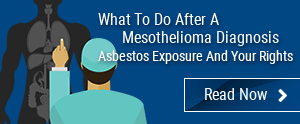5 Common Signs of Nursing Home Abuse
Moving your parents to a nursing home can be a difficult decision, which is why it’s important to choose the facility you utilize carefully. Find out what you need to know about the warning signs of nursing home abuse in this article.
One of the most challenging decisions adult children have to make is when to move their parents to a nursing home. You may choose to utilize a nursing home for a variety of reasons. If your family member has a medical condition that requires constant care, for example, a quality nursing home facility can provide the care they need. Similarly, if your loved one thrives with routine and the social interaction they’ll get to enjoy at an assisted living facility, it may be time to move them. It’s important, however, that you understand nursing homes are not without risks. Sometimes adults in nursing homes experience abuse. Here are five common signs of nursing home neglect and abuse you need to be aware of. If you suspect there’s a problem with the nursing home your loved one is at, you should reach out to an attorney as soon as possible.
1. Bruising
While bruising is not uncommon in some elderly adults, it’s important to note if you see an unexplained bruise on your loved one’s body. Bruising can be one of the first signs of abuse and neglect, whether it be from falling or from being hurt by another person.
2. Fractures
It’s easy for elderly adults to fracture bones; however, a nursing home facility is supposed to be a safe place. If your loved one experiences bone fractures, it’s possible they fell because they were not being properly monitored. It’s also possible that the facility was not being properly cared for, which is how they slipped and fell.
3. Cracked skin
Your loved one should receive proper nutrition while living at the nursing home. This includes regular meals and plenty of fluids. If your family member has cracked skin, it’s possible that they are dehydrated from a lack of proper nutrition. This is something you should be concerned about. Dry, cracked skin is the most common sign of dehydration in the elderly.
4. Emotional withdrawal
Does your loved one seem emotionally withdrawn when you visit? Have they stopped speaking to you? Are they anxious and worried when you visit? Emotional withdrawal is a common sign of abuse. If your family member is not being properly cared for, they may be scared, agitated, or frustrated, especially if they do not know how to verbalize what is happening.
5. Unhappiness
Finally, make sure you note if your family member suddenly becomes incredibly unhappy. While moving to a new place takes some adjustment, pay careful attention if your normally happy parent is suddenly incredibly unhappy and sad at the nursing home.
Contact your lawyer if you believe your loved one is experiencing nursing home abuse. They’ll be able to talk with you about the signs and symptoms of abuse. Your lawyer can help you gather evidence and build a case. Most importantly, your lawyer will help you move forward and assist you in seeking the compensation your loved one deserves. Call today.


